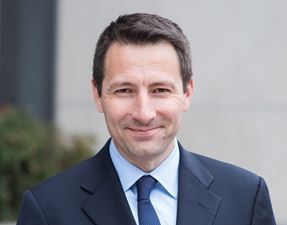The International Monetary Fund (IMF) has described its second round of negotiation with Ghana for a loan support facility for the country’s homegrown economic programme as constructive.
The Fund, however, said, the team would advance its technical work including further progress on assessing Ghana’s debt sustainability in the weeks ahead, including discussions at its Annual Meetings in Washington D.C.
Mr Stéphane Roudet, the IMF Mission Chief to Ghana, at the end of the meeting on Friday, said: “We had constructive discussions on policies aimed at restoring macroeconomic stability and laying the foundation for stronger and more inclusive growth.”
“We reaffirm our commitment to support Ghana in these challenging times, consistent with the IMF’s policies,” Mr Roudet, said.
He expressed the IMF team’s gratitude to the Ghanaian authorities, private sector, civil society, development partners and other stakeholders for their constructive engagement and support during this mission.”
Ghana is before the IMF for $3 billion to help the country navigate through the hostile economic crisis it finds itself in as a result of the adverse effects of the deadly coronavirus pandemic and the ongoing conflict between Russia and Ukraine.
The loan is to support the Government’s Enhanced Domestic Programme, which is to help the country navigate through the current economic hardship and improve its fiscal balances sustainably.
Ghana, just like many other countries the world over, is experiencing economic hardship largely due to Covid-19 and the Russia-Ukraine War.
The second in a series of negotiations dealt with issues including ensuring public finance sustainability while protecting the vulnerable, bolstering the credibility of monetary and exchange rate policies to reduce inflation and rebuild external buffers.
The discussions also touched on preserving Ghana’s financial sector stability, and steps to encourage private investment and growth, including by improving governance, transparency, and public sector efficiency.
The IMF team was in Ghana from September 26 to October 7 and discussed policies that could be supported by an IMF arrangement to help the country navigate through the current economic hardship and improve its fiscal balances sustainably.
The team met with President Nana Addo Dankwa Akufo-Addo, and his Vice, Dr Mahamudu Bawumia, as well as the Finance Minister Ofori-Atta, and Bank of Ghana Governor, Dr Ernest Addison and their respective teams.
The IMF team also met with the Parliament’s Finance Committee, and representatives from various government agencies, the Trades Union Congress, the private sector, civil society organizations, and development partners.
To access the loan Debt Sustainability Analysis (DSA), is a prerequisite which will be a “confirmation that Ghana’s debt is on a sustainable path or not.
The team analysed Ghana’s ability to finance its policies as well as its capacity to pay principal and interest on loans on time.
Debt Sustainability Analysis is usually conducted by the IMF as part of its advice on macroeconomic policies, both in the context of IMF-supported programmes and surveillance.
Through a framework, which became operational in 2002, the analysis critically assesses a country’s ability to finance its policy objectives and service the ensuing debt without unduly large adjustments, which could otherwise compromise its stability.
The analysis will not only help the IMF in its decision to support the country’s enhanced domestic programme, but also help the financial market players to appreciate the debt position of Ghana.
- Enterprise Life launches improved education investment solution - 31 March 2025
- Access Bank Ghana launches “Fa Ketewa Bɛgye Kɛseɛ” promo - 31 March 2025
- President Mahama Calls for unity at Eid Al-Fitr celebration - 31 March 2025

